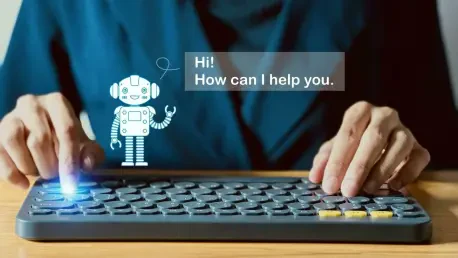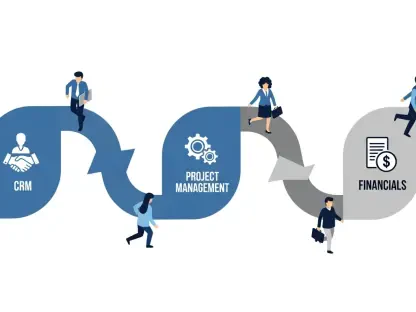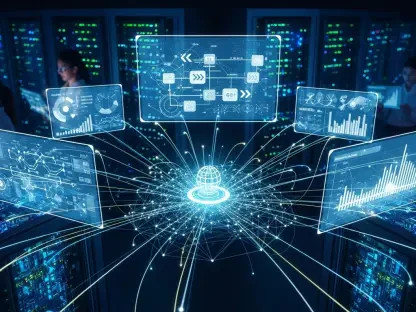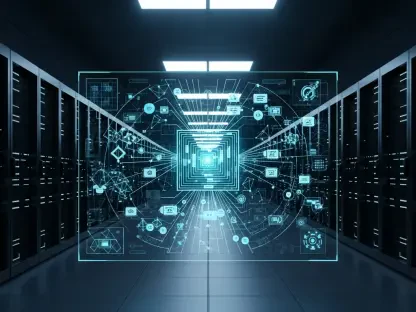The ongoing evolution of artificial intelligence is transforming various sectors, and the integration of ChatGPT with GitHub exemplifies how AI is redefining the landscape of coding. OpenAI has strategically introduced a GitHub connector to its chatbot, marking a notable milestone in AI-powered development tools. By enabling ChatGPT to delve into codebases, developers can utilize its deep research capabilities to pose questions and gain insights into complex code structures. This development not only augments their understanding and efficiency but also offers a glimpse into how AI can become an invaluable assistant in the coding domain. OpenAI’s innovation promises to facilitate coding tasks, streamline workflows, and enhance productivity while safeguarding against misinformation.
Unveiling ChatGPT’s GitHub Integration
Boosting Coding Efficiency with Deep Research Capabilities
OpenAI has expanded ChatGPT’s functionalities by integrating it with GitHub to empower developers with AI-supported coding tools. This integration allows the chatbot to analyze codebases directly, paving the way for descriptive insights into product specifications, technical tasks, and API implementations using real code examples. The collaboration exemplifies an industry trend toward more specialized AI applications, offering developers tools to efficiently break down complex coding tasks. The GitHub integration is currently accessible to ChatGPT Plus, Pro, and Team users, illustrating OpenAI’s strategic approach to embed AI into everyday developer tasks, potentially transforming how coding projects are approached and executed.
With an emphasis on AI assistive technologies, OpenAI has enhanced its coding tool portfolio, including the Codex CLI and ChatGPT’s desktop app tailored for developer-centric applications. The introduction of the GitHub connector signifies a critical step forward, as it aims to provide developers with a supplementary resource that maintains the integrity of expert opinions while automating certain aspects of coding workflows. OpenAI assures that organizational settings remain respected, ensuring secure access and privacy protocols are upheld, thereby reinforcing the credibility and reliability of this advanced AI tool amidst potential challenges in ensuring accuracy and precision in AI-generated insights.
Mitigating Risks: Addressing Hallucinations in AI
Despite its potential, ChatGPT’s GitHub integration faces challenges inherent to AI technologies, particularly the risk of generating inaccurate or “hallucinated” information. OpenAI acknowledges this possibility and is committed to positioning ChatGPT’s GitHub tool as an aid to developers rather than a standalone solution. Addressing hallucinations, which are cases where AI may provide erroneous or misleading data, requires robust safeguards and further refinement of the AI’s algorithms. As AI becomes more integrated into coding practices, maintaining accuracy alongside efficiency remains a priority for developers and AI providers alike.
To counteract such risks, OpenAI is advancing verification and security measures across its platforms. Incorporating comprehensive verification processes helps ensure that model access is restricted, with institutions required to provide identification documents that confirm authenticity and prevent misuse. These protective measures are crucial as AI tools become increasingly prevalent in specialized platforms, necessitating stringent protocols to uphold both security and reliability. Through these efforts, OpenAI aims to balance innovation with responsibility, fostering trust and confidence within the developer community while advancing AI’s role in coding.
Future Directions in AI-Enabled Coding
Customization and Security: Optimizing AI Models
OpenAI’s trajectory includes fine-tuning AI capabilities by offering customization for its newer models such as the o4-mini and GPT-4.1 nano. These enhancements enable developers to tailor AI models to suit specific user needs, optimizing the performance and utility of AI in coding environments. Custom parameters allow the AI to adapt more precisely to the demands of varied coding projects, ensuring relevance and precision. This shift toward customizable AI systems reflects a broader industry trend of advancing AI to better meet end-user requirements and bolster efficiency without compromising on quality.
As AI technologies permeate the coding domain, OpenAI is emphasizing verification and security, reducing potential misuse and ensuring models operate within desired confines. This approach highlights the necessity of balancing the openness of AI integrations with the imperative of safety and ethical usage. Enhanced security measures, including identity verification, exemplify the serious considerations undertaken to maintain secure interactions with AI, fostering trust and preventing vulnerabilities in coding projects. OpenAI’s strategic focus on security aids in cultivating a dependable environment where AI tools can flourish and extend their capabilities to the realm of coding.
Transforming Coding: Implications and Opportunities
The integration of AI tools like ChatGPT with platforms such as GitHub represents a significant shift in coding practices, bringing forth a plethora of opportunities for developers. By demonstrating AI’s potential to streamline coding tasks, simplify complex processes, and augment human expertise, OpenAI is reshaping the traditional boundaries of coding. Developers now have at their disposal a tool that not only assists in task breakdowns and project management but enhances overall productivity by offering insights grounded in an extensive array of resources. This transformation unleashes new possibilities, enabling coding professionals to push the limits of creativity and efficiency.
Furthermore, extending AI’s capabilities into coding heralds positive implications for learning and development within the coding community. As tools like ChatGPT become more ingrained, they serve educational purposes, assisting budding developers in understanding intricate coding paradigms and accelerating learning curves. OpenAI’s advances in AI integration promise to democratize access to coding resources and insights, nurturing a more inclusive environment where developers of varying experience levels can leverage AI to their advantage. These developments reflect an evolving landscape, where coding is not only a technical endeavor but an interface enriched by AI technologies that empower developers with unprecedented access to information and efficiencies.
Charting New Horizons
The rapid advancements in artificial intelligence are redefining numerous sectors, with ChatGPT’s integration into GitHub illustrating the profound impact AI is having on coding practices. OpenAI has smartly rolled out a GitHub connector for its renowned chatbot, marking a significant milestone in AI-driven development tools. With this integration, ChatGPT can thoroughly explore codebases, offering developers access to its advanced research capabilities, enabling them to ask detailed questions and gain crucial insights into intricate code structures. This innovation not only enhances developers’ comprehension and efficiency but also highlights AI’s potential as a valuable partner in coding activities. OpenAI’s breakthrough aims to improve coding tasks, optimize workflows, and boost productivity. Moreover, it promises to ensure reliable information flow, preventing the spread of misinformation in the development process, showcasing the future possibilities of AI in shaping the coding landscape.









